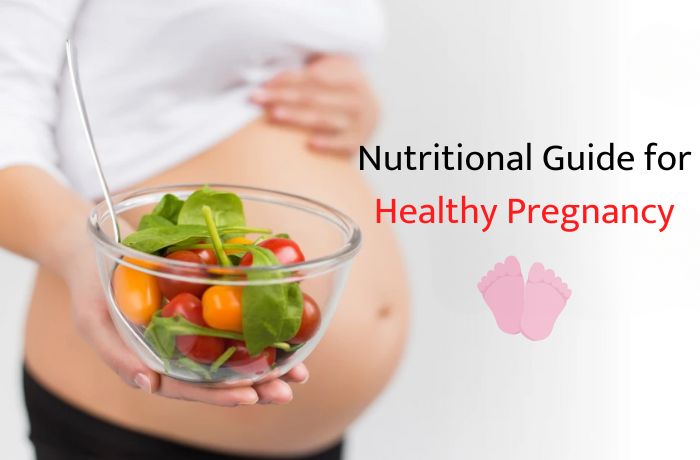Pregnancy is a life-changing journey and taking care of your body during this time is vital for both you and your baby. Proper nutrition is one of the most important ways to ensure a healthy pregnancy. This guide provides helpful information on what to eat, what to avoid and how to maintain a balanced diet to support your baby’s growth.
Why Nutrition is Key During Pregnancy
What you eat during pregnancy directly affects your baby’s development. Proper nutrition provides the essential building blocks your baby needs to grow, such as vitamins, minerals, protein and healthy fats. A balanced diet will help you maintain a healthy weight, prevent complications such as gestational diabetes or high blood pressure, and ensure that your baby gets the nutrients it needs to grow properly.
By focusing on eating well, you will not only be supporting your baby’s development, but also your own health by giving your body the fuel it needs during this demanding time.
Essential Nutrients for a Healthy Pregnancy
During pregnancy, some nutrients become even more important to keep you and your baby healthy. Here are some key nutrients to focus on:
1. Folic acid: This B vitamin is essential for preventing neural tube defects, which affect the baby’s brain and spinal cord. Good sources include green leafy vegetables, citrus fruits and fortified cereals.
2. Iron: Pregnant women need more iron to produce extra blood for the baby. Iron helps prevent anaemia and increases energy levels. Foods rich in iron include red meat, beans, spinach and iron-fortified cereals.
3. Calcium: Your baby needs calcium to help build strong bones and teeth. If you don’t get enough calcium from your diet, your body will draw it from your bones, which can weaken them over time. Milk, yoghurt, cheese and fortified plant drinks are good sources of calcium.
4. Omega-3 fatty acids: These healthy fats, especially DHA, are important for the development of your baby’s brain and eyes. Oily fish such as salmon and flaxseed are good sources of omega-3s.
Protein: Protein supports the growth of your baby’s tissues, including the brain, and helps build breast and uterine tissue. Lean meat, poultry, eggs, beans and tofu are good sources of protein.
By including these nutrients in your daily meals, you’re helping ensure your baby gets everything they need to grow and develop properly.
Foods to Eat During Pregnancy
Maintaining a varied and nutrient-rich diet is important. Here are some healthy foods to include in your meals:
1. Vegetables and fruit: These are packed with vitamins, minerals and fibre. Aim for a variety of colours on your plate to get different nutrients. Leafy vegetables such as spinach and kale are rich in folic acid and iron.
2. Whole grains: Foods such as brown rice, oats and wholemeal bread are great sources of energy and fibre, which can help with digestion and prevent constipation.
3. Lean protein: Chicken, turkey, fish and eggs are excellent sources of protein. Choose lean cuts to avoid too much saturated fat.
4. Dairy products: Low-fat milk, cheese and yogurt provide essential calcium. If you are lactose intolerant, fortified plant-based alternatives such as almond or soy milk are good options.
5. Nuts and seeds: These are a great source of healthy fats, fibre and protein. Almonds, chia seeds and walnuts are all great choices to include in snacks or meals.
Drinking plenty of water throughout the day is just as important as eating well. Staying hydrated aids digestion and helps absorb nutrients.
Foods to Avoid During Pregnancy
While many foods are beneficial, there are some you should avoid for safety reasons:
Raw or undercooked fish and meat: Raw seafood such as sushi or undercooked meat can contain harmful bacteria or parasites that can cause food poisoning. Always make sure that fish and meat are fully cooked.
- Processed foods: Try to limit your intake of foods high in salt, sugar and unhealthy fats, such as fast food, processed snacks and sugary drinks. These can contribute to excessive weight gain and increase the risk of gestational diabetes.
- Caffeine: High levels of caffeine can increase the risk of miscarriage or low birth weight. Limit your intake to no more than 200 mg per day (about one cup of coffee).
- Alcohol: Alcohol should be completely avoided during pregnancy as it can cause developmental problems in the baby.
Taking these precautions with your food choices will help create a safe environment for your baby to grow.
Common Nutritional Challenges and How to Overcome Them
Pregnancy can bring its own challenges when it comes to diet. Here are some common problems and tips on how to deal with them:
- Morning sickness: If you experience morning sickness, try eating small, frequent meals and bland foods such as crackers or toast. Ginger tea may also help reduce nausea.
- Food aversions: Certain smells or textures may put you off. Focus on the foods you can tolerate and try to get similar nutrients from other sources. For example, if you can’t eat meat, beans and lentils are great protein alternatives.
- Cravings: It’s OK to indulge in cravings from time to time, but try to find healthier alternatives. If you crave sweets, choose fruit instead of sweets.
Understanding how to deal with these challenges will help you continue to eat well, even when it’s not easy.
Nutrition plays an important role in keeping you and your baby healthy during pregnancy. By focusing on a balanced diet full of essential nutrients, you’ll give your baby the best start in life. Remember, no two pregnancies are the same, so it’s always a good idea to talk to a healthcare professional for advice tailored to your specific needs.
For more advice on nutrition during pregnancy, contact Dr. Jyoti Kale, a trusted gynecologist and obstetrician in Moshi. She can help answer any questions you may have about maintaining a healthy diet during this important time.


